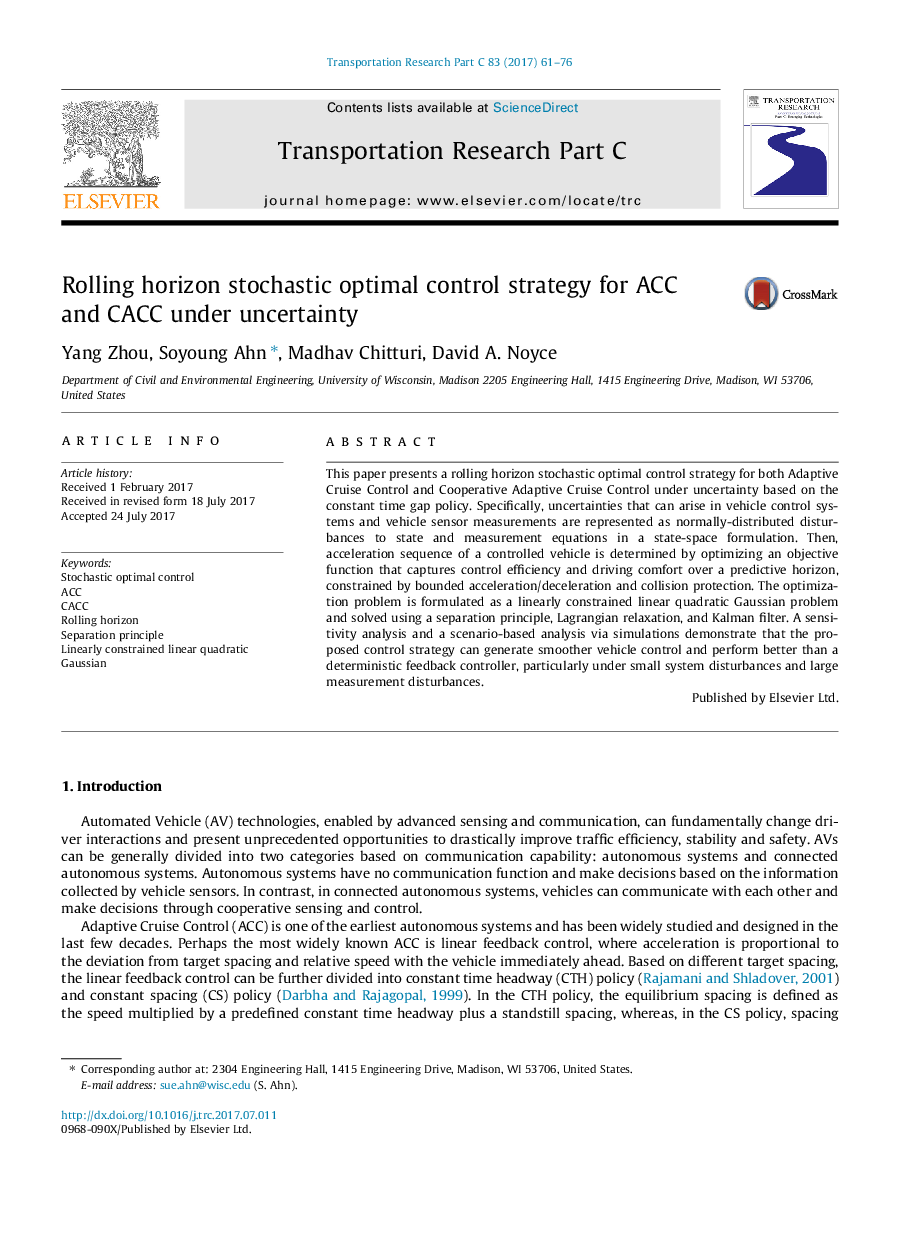| Article ID | Journal | Published Year | Pages | File Type |
|---|---|---|---|---|
| 4968470 | Transportation Research Part C: Emerging Technologies | 2017 | 16 Pages |
Abstract
This paper presents a rolling horizon stochastic optimal control strategy for both Adaptive Cruise Control and Cooperative Adaptive Cruise Control under uncertainty based on the constant time gap policy. Specifically, uncertainties that can arise in vehicle control systems and vehicle sensor measurements are represented as normally-distributed disturbances to state and measurement equations in a state-space formulation. Then, acceleration sequence of a controlled vehicle is determined by optimizing an objective function that captures control efficiency and driving comfort over a predictive horizon, constrained by bounded acceleration/deceleration and collision protection. The optimization problem is formulated as a linearly constrained linear quadratic Gaussian problem and solved using a separation principle, Lagrangian relaxation, and Kalman filter. A sensitivity analysis and a scenario-based analysis via simulations demonstrate that the proposed control strategy can generate smoother vehicle control and perform better than a deterministic feedback controller, particularly under small system disturbances and large measurement disturbances.
Related Topics
Physical Sciences and Engineering
Computer Science
Computer Science Applications
Authors
Yang Zhou, Soyoung Ahn, Madhav Chitturi, David A. Noyce,
